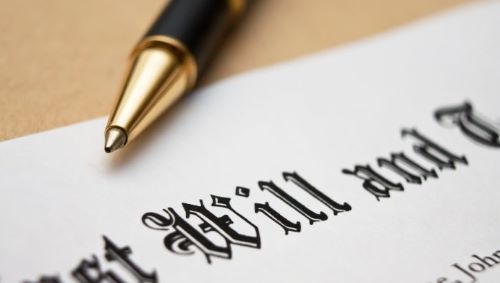

Everyone needs some form of estate planning. But you may not love the idea of hiring a lawyer to help you with the estate planning process. With an abundance of online tools and information now available, is it possible for the average person to do their own estate planning?
And if not, what’s the best way to find a good lawyer?
The Basics of Estate Planning
First, let’s establish why estate planning is so important. Estate planning involves many interconnected elements, such as taking inventory of your current assets, repackaging and protecting those assets, planning for distribution of those assets after your passing, and even planning for your own end of life.
This can help you in several ways:
· Plan for contingencies. Estate planning is a great way to plan for contingencies. If there are unforeseen developments in your life or in the aftermath of your passing, estate planning can help you account for them and navigate around them.
· Minimize taxes. Many people pursue estate planning specifically to minimize taxes. Your descendants and other recipients will likely be able to accept at least some portion of their inheritance without taxes, but certain types of transfers are taxed very heavily. If you own appreciated assets like real estate or a business, a Deferred Sales Trust can help you defer capital gains taxes in a strategic way. With proper planning, you can minimize or even eliminate many of these tax burdens.
· Avoid probate complications. Estate planning is one of the best ways to avoid probate complications. After your passing, probate can last months or years and cause headaches for everyone involved. But if you have a streamlined plan in place, you can simplify things tremendously.
· Distribute assets appropriately. Some people pursuing estate planning are primarily interested in the appropriate distribution of their assets. They want to make sure that specific possessions and holdings go to specific people. This is especially important if you’re planning on distributing ownership of a business, real estate, or other assets that are both valuable and hard to divide.
· Maintain your estate. If you’re interested in preserving your estate as much as possible, estate planning is a practical necessity. Otherwise, your estate could easily be broken up or fall into the wrong hands.
· Reduce/eliminate conflicts. Even the best, most loving families sometimes devolve into chaos after the death of a prominent family member. Small disagreements can spiral out of control and turn into massive conflicts, especially when large sums of money are at stake. Estate planning allows you to reduce or eliminate most conflicts.
· Secure peace of mind. Finally, estate planning gives you peace of mind. You’ll feel much more secure about what’s going to happen leading up to and after your death.
The DIY Estate Planning Route
It is technically possible to choose the DIY route for estate planning. Many legal entities, such as trusts, can be created without having a legal background, and relying on templated contracts can help you draft the proper paperwork.
These days, you can even use legal AI to help you with some of this work. Legal AI streamlines things like research and document drafting, and is used by many lawyers to facilitate more efficient productivity. However, legal AI does have some drawbacks, making it an insufficient standalone replacement for a human lawyer.
Also, it’s important to keep in mind that the probability of mistakes is very high if you’re doing your own estate planning. Laws related to probate and estate planning can be very complicated, and vary from place to place, and even a single misplaced comma could spell complications for the distribution of your estate in the future.
For most people, in most situations, it’s much better to work with an estate lawyer directly.
Finding an Estate Planning Lawyer
Hiring an estate lawyer is typically the right move, but how do you find one?
· Location. Laws vary from place to place, so get someone who knows your area, specifically.
· Experience. More experienced lawyers tend to be more expensive, but they’re often worth the money. Choose someone with years, if not decades of experience, if you can.
· Reputation. Also pay attention to reputation. Does this lawyer have lots of good reviews and testimonials? Do they seem to be respected in the industry?
· Availability. Great estate planning lawyers don’t always have open availability. You’ll need to consider this as well.
· Communication. How easy is it to communicate with this lawyer? If you have questions, do they get back to you quickly? Do they put everything in simple terms that you can understand?
· Price. And, of course, you’ll also need to investigate pricing.
Estate planning is valuable for many reasons, and it’s generally an accessible service. However, it’s a good idea to work with a human lawyer in most cases – and it’s important to do your research so you end up with a competent representative.


